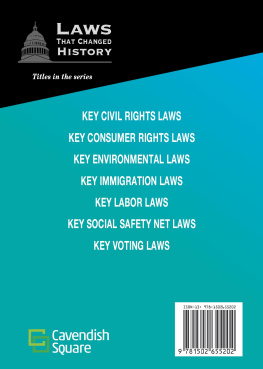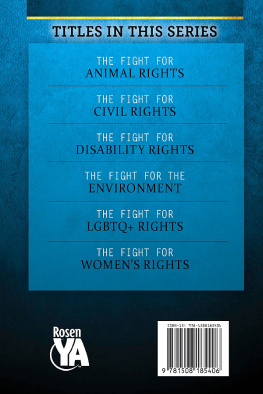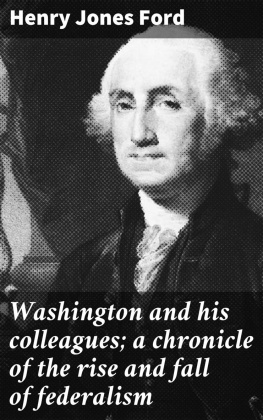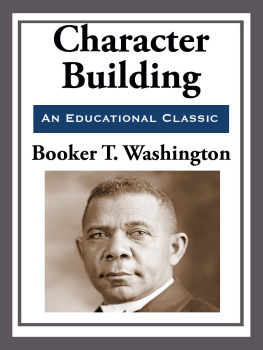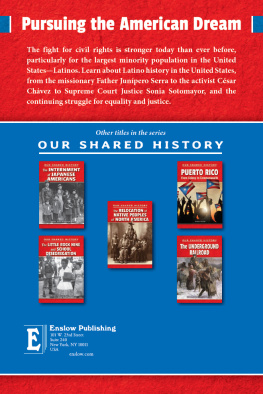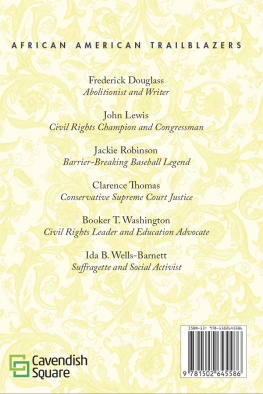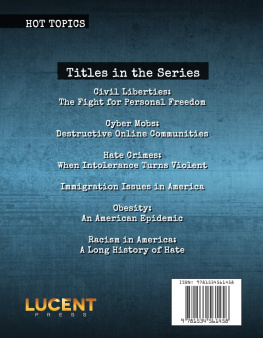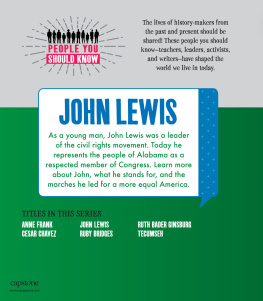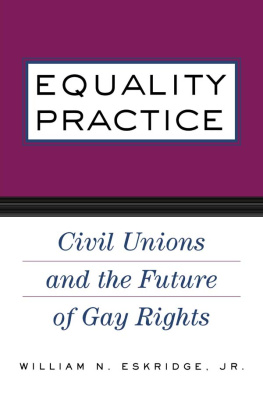Published by The History Press
Charleston, SC
www.historypress.net
Copyright 2016 by Ida E. Jones
All rights reserved
Front cover: William Henry Jernagin portrait. Courtesy of the Mount Carmel Baptist Church Archives.
First published 2016
e-book edition 2016
ISBN 978.1.62585.686.9
Library of Congress Control Number: 2015959413
print edition ISBN 978.1.46711.911.5
Notice: The information in this book is true and complete to the best of our knowledge. It is offered without guarantee on the part of the author or The History Press. The author and The History Press disclaim all liability in connection with the use of this book.
All rights reserved. No part of this book may be reproduced or transmitted in any form whatsoever without prior written permission from the publisher except in the case of brief quotations embodied in critical articles and reviews.
Dedicated to Yolanda Williams for the love of archives, history and Mount Carmel Baptist Church.
FOREWORD
Once in a generation, a person comes along who endeavors to change of the way people view themselves and the world, in part because of the way God has wired mankind and in part from the demands of social pressures, political issues and crusades for justice/fair play. A lot of the time, these people, these agents of change, are often unsung or unknown to the mainstream after their mortal time on earth. Dr. William Henry Jernagin was such a person. As an ordained Baptist preacher, prophet, religious leader and civil rights advocate, his fingerprints are evident in many of the transforming events that led to the modern civil rights movement contemporary to the human rights movement. Jernagin created and sustained institutions that greatly improved and enhanced the lives of mankind in general, and the Negro in particular, along local, regional, national and international lines. This study brings to light Dr. Jernagins lifes ambition, which was to enable his people with Gods guidance and assistance to reach their fullest potential, occupying the upper echelons of society, all the while maintaining and preserving their own culture as men and brother, citizen and patriot in America and abroad.
I am both privileged and honored to say a few words about a man whom I never met, who died long before I was born, yet my life has and continues to be lived out essentially according to his vision. While attending Howard University as a graduate student in the Department of History, I decided that I would write my masters thesis on my grandfather, Dr. Andrew Fowler. Prior to this, while I was an undergraduate student at the University of the District of Columbia, my father had given my grandfathers papers to Moorland-Spingarn Research Center, which is housed on Howards campus. When Dr. Ida E. Jones and the staff at Moorland-Spingarn delivered box after box and copy after copy for me, I immersed myself in the life of my grandfathera small-town country boy from Inman, South Carolina, who arrived in Washington, D.C., on August 13, 1937, to attend the School of Religion at Howard University, having graduated from Tuskegee Institute two months earlier. I rediscovered that during his early years at Howard and at his apprenticeship at the historic Shiloh Baptist Church before being called to pastor the Capital View Baptist Church in the northeast quadrant of the city, he became closely acquainted with Baptist giants like Mordecai Wyatt Johnson, president of Howard University; Benjamin Elijah Mays, dean of the School of Religion at Howard University and president of Morehouse College; Howard Thurman, founding dean/chaplain at Rankin Chapel of Howard University; Earl L. Harrison, pastor of Shiloh Baptist Church and innovative leader; John Lawrence Sullivan Holloman, pastor of Second Baptist Church; Mary Church Terrell, club woman and activist; Nannie Helen Burroughs, school founder and Baptist Womens Department activist; and Dr. Jernagin.
My grandfather, Andrew Fowler, earned advanced degrees and had sat under some of the greatest minds. Initially, he was what was known as a satchel man. In laymans terms, he was Dr. Jernagins adjutant; in modern church terms, he was the armor bearer. For the last fifteen or so years of Jernagins life, where you saw one, you generally saw the other. As I delved into my grandfathers life and involvement in Baptist and ecumenical activities and civil rights issues, particularly as it relates to the District of Columbia, I realized that without the tutelage and mentorship of Dr. Jernagin, he would not have become what he essentially becamea man of causes.
In this book, Dr. Jones uses multiple approaches for inquiry by focusing on Dr. Jernagins organizational involvement, educational programming and political activities to address not only the segregation and discriminatory practices and policies that loomed over American society but also the religious interdenominational and theological ideologies that existed among preachers of the Gospel. Jernagin was in a key position to organize and communicate the concerns of African American clergy and laity. His vision and interests made a deep impression on my grandfather and other young pastors and ministers who had a concern for cooperative religious work, with my grandfather catching some of his enthusiasm for cooperative action by, from and on behalf of the Negro churches.
In addition to a full-time pastorate at the historic Mount Carmel Baptist Church, Dr. Jernagin served as the president of the General Baptist Convention of the District of Columbia and president of the National Baptist Congress Sunday School and Baptist Training Union, while also finding the time to establish the Washington Baptist Theological Seminary in 1926. Another very important organization to which he belonged was the National Fraternal Council of Negro Churches of America, Incorporated (NFCNC), of which he served as chairman and founder of the Washington Bureau, as well as its action armthe Committee of One Hundred Ministers. Dr. Jernagins contributions as a Chaplain for Christ and the Race outside the United States are also central to this book. His involvement with
W.E.B. DuBois and the Pan-African Congress showcases his commitment to end colonial rule, racial discrimination and imperialism in Africa and the Caribbean, while also demanding basic human rights and equality of economic opportunity.
Until the day my grandfather died in early 2003, he regularly spoke the name of Dr. William Henry Jernagin. Dr. Jernagin, though small in stature, was a giant in spirit and a possessor of phenomenal insight. He obviously believed in and practiced what the scripture says:
Write the vision, and make it plain upon tables, that he may run thatreadeth it. For the vision is yet for an appointed time, but at the end it shallspeak, and not lie: though it tarry, wait for it; because it will surely come,it will not tarry.
Habakkuk 2:23, KJV
And having envisioned it, he had the tenacity, fortitude and perseverance to see it through to manifestation. He was a man of uncommon valor, vision and foresight who had an uncanny ability to read people and situations; a man of great patience and determination who knew where he was going and relied on the Holy Spirit to lead him to where He would have him go, able to separate the wheat from the chaff. He was ever moving onward, not allowing circumstances and appearances to slow him down or dissuade him. He was always a great motivator, always seeking new challenges as he endeavored to promote the interests of his people. He lived as though God was watching his every move, as though he expected Jesus to return any day and request of him, Give an account of thy stewardship. He knew with God on your side, the whole world against you will not stand. These principles of life he instilled in my grandfather, and my grandfather instilled them in my father, and my father is endeavoring to instill them in me. The spirit of Dr. William Henry Jernagin has impacted my professional life in many ways as well, as I strive to do whatever I do with excellence and integrity. He was a man of great character who believed that character builds the person, character builds the family and character builds the nation. The scripture says, Righteousness exalteth a nation: but sin is a reproach to any people (Proverbs 14:34, KJV).




